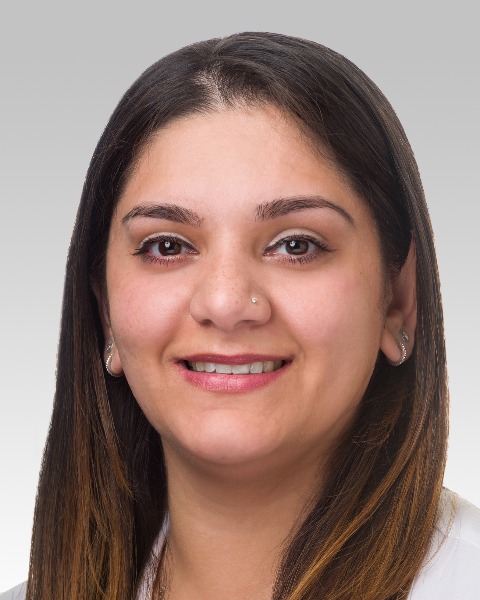Poster Session 2
(595) Association of Sleepiness in Pregnancy with Cardiovascular Health 2-7 years after first birth
.jpg)
Rachel L. Friedlander, MD
Resident
Northwestern Feinberg School of Medicine
Chicago, Illinois, United States- XH
Xiaoning Huang, PhD
Northwestern University
Chicago, Illinois, United States 
Sadiya S. Khan, MD, MSc
Assistant Professor of Medicine
Northwestern University Feinberg School of Medicine
Chicago, Illinois, United States- PZ
Phyllis Zee, MD, PhD
Northwestern University Feinberg School of Medicine
Chicago, Illinois, United States - PG
Philip Greenland, MD
Northwestern
Northwestern/Chicago, Illinois, United States 
Natalie A. Bello, MD, MPH (she/her/hers)
Associate Professor of Cardiology
Cedars Sinai Medical Center
Los Angeles, California, United States- JC
Janet Catov, MS, PhD
Professor, Department of Obstetrics, Gynecology & Reproductive Sciences
Magee-Womens Hospital
Pittsburgh, Pennsylvania, United States - BG
Bethany B. Gibbs, MSc, PhD
West Virginia University
Morgantown, West Virginia, United States 
William A. Grobman, MBA, MD
Professor
The Ohio State University
Columbus, Ohio, United States- DH
David M. Haas, MD, MS
Attending Physician
Indiana University School of Medicine
Indianapolis, Indiana, United States .jpg)
Lisa D. Levine, MD, MSCE (she/her/hers)
Associate Professor, Chair, Division of MFM.
University of Pennsylvania Perelman School of Medicine
Philadelphia, Pennsylvania, United States- CB
C. Noel Bairey Merz, MD
Cedars-Sinai Medical Center
Los Angeles, California, United States 
Eliza C. Miller, MD, MS
Assistant Professor of Neurology
Columbia University Medical Center
New York, New York, United States
Uma M. Reddy, MD, MPH (she/her/hers)
Professor and Vice Chair of Research, Department of Obstetrics and Gynecology
Columbia University
New York, New York, United States
Lynn M. Yee, MD, MPH (she/her/hers)
Associate Professor
Northwestern University Feinberg School of Medicine
Chicago, Illinois, United States
Submitting Author and Presenting Author(s)
Coauthor(s)
Excessive daytime sleepiness has been associated with cardiovascular disease in non-pregnant populations. This study examined the association of sleepiness during pregnancy and cardiovascular health (CVH) scores 2-7 years after first birth.
Study Design:
In this secondary analysis of longitudinal data from a large, diverse cohort of nulliparas conducted at eight US medical centers, individuals were followed 2-7 years after their first birth. The Epworth Sleepiness Scale, a validated tool to assess daytime sleep propensity (i.e. the likelihood of falling or staying asleep), was used to evaluate sleepiness in early (6-13 weeks) and mid- pregnancy (22-29 weeks). Individuals with scores ≤10 were categorized as having no sleepiness (referent), 11-15 as moderate sleepiness, and 16-24 severe sleepiness. The primary outcome was CVH quantified by the American Heart Association’s Life’s Essential 8 (LE8) score, which is a validated surrogate of cardiovascular disease risk, with lower scores representing worse CVH. The LE8 score includes diet, physical activity, nicotine exposure, sleep, body mass index, blood pressure, blood glucose, and lipids, and ranges from 0 (worst) to 100 (best). Separate multivariable linear regression models were performed for early and mid-pregnancy adjusting for maternal age, insurance type, smoking status, and study site.
Results: Of 2,193 participants, moderate and severe sleepiness was reported in 20.3% and 4.1%, respectively, in early pregnancy and in 14.2% and 2.2%, respectively, in mid-pregnancy. Severe sleepiness in mid-pregnancy was associated with lower mean LE8 score (76.9 [SD 13.8] vs. 80.4 [SD 12.9]) 2-7 years after first birth (aβ -3.63 95% CI [-6.90, -0.36]). In contrast, moderate and severe sleepiness in early pregnancy were not associated with LE8 score.
Conclusion: Severe sleepiness in mid-pregnancy may be a previously unidentified risk factor for poorer CVH indices 2-7 years after first birth.

